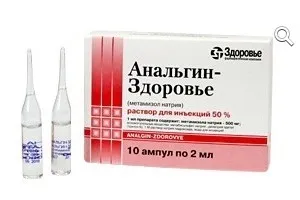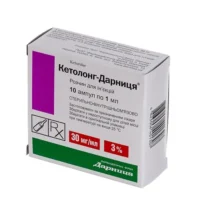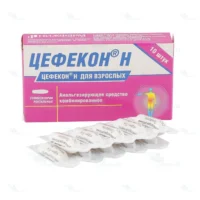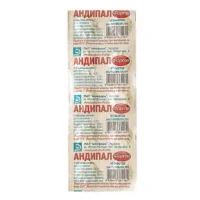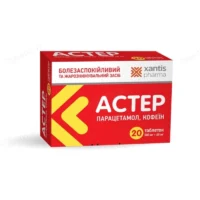Description
Analgin (Metamizole Sodium) Ampoules 50% 2 ml. №10
Ingredients:
Each ampoule contains 2 ml of metamizole sodium at a concentration of 50%.
Mechanism of Action:
Metamizole sodium exerts its analgesic and antipyretic effects by inhibiting the synthesis of prostaglandins, which are mediators of pain and inflammation in the body.
Pharmacological Properties:
Analgin belongs to the class of pyrazolones and acts as a non-opioid analgesic and antipyretic agent.
Indications for Use:
Analgin is indicated for the relief of mild to moderate pain, including postoperative pain, colic, and fever.
Contraindications:
Analgin should not be used in patients with a history of agranulocytosis or other blood disorders, or in patients with a known hypersensitivity to metamizole sodium.
Side Effects:
Common side effects of Analgin may include gastrointestinal disturbances, skin reactions, and rare but serious adverse effects like agranulocytosis.
Usage Instructions:
The usual dosage of Analgin is 1-2 ampoules (2-4 ml) injected intramuscularly or intravenously up to 3 times a day. It should be administered strictly as directed by a healthcare professional.
Benefits Compared to Analogues:
Analgin offers effective pain relief and antipyretic properties with a distinct mechanism of action compared to other nonsteroidal anti-inflammatory drugs (NSAIDs).
Suitable Patient Groups:
Analgin can be used in various patient groups including adults, children (under medical supervision), and the elderly.
Storage and Shelf Life:
Store Analgin in a cool, dry place away from direct sunlight. Check the expiration date on the packaging and do not use after the specified date.
Packaging Description:
Analgin is available in ampoules containing 2 ml of 50% metamizole sodium solution. Each package contains 10 ampoules.
Clinical Evidence and Proven Effectiveness:
Analgin has been widely used in clinical practice for its analgesic and antipyretic effects. Research studies have demonstrated its efficacy in pain management and fever reduction. Ongoing research aims to further explore its safety and efficacy in comparison to other analgesic agents.

